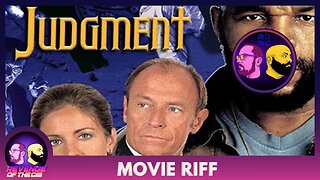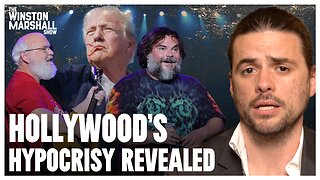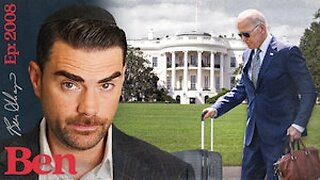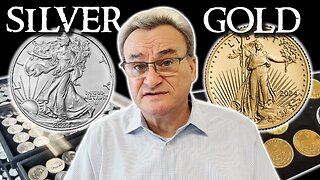Wildflower Interview: Matt Smukler on Melding Comedy With a True Story
Wildflower Interview: Matt Smukler on Melding Comedy With a True Story
ComingSoon Senior Editor Spencer Legacy spoke with Wildflower director Matt Smukler about the dramedy movie. Wildflower is now available digitally and through video-on-demand. “A girl navigates life with two neurodivergent parents and an extended family that can’t quite agree on the best way to help,” reads the film’s synopsis. Spencer Legacy: This is very unique as you directed the documentary Wildflower and now this drama. What was it about this true story that kept bringing you back to it and wanting to spotlight it in a different way? Matt Smukler: It’s interesting, I didn’t really want to go back to...
ComingSoon Senior Editor Spencer Legacy spoke with Wildflower director Matt Smukler about the dramedy movie. Wildflower is now available digitally and through video-on-demand. “A girl navigates life with two neurodivergent parents and an extended family that can’t quite agree on the best way to help,” reads the film’s synopsis. Spencer Legacy: This is very unique as you directed the documentary Wildflower and now this drama. What was it about this true story that kept bringing you back to it and wanting to spotlight it in a different way? Matt Smukler: It’s interesting, I didn’t really want to go back to it. It was a six-year project and I certainly didn’t want to recreate the same thing. I guess, ultimately, it was this idea that I did feel like it was such a unique story, and if I could tell it in a way that was potentially a little more accessible, through comedy mixed with heart, I thought that maybe we could reach more people. So that was ultimately the way that I decided, “Okay. Yeah, I do want to continue and give it another two years of my life.” [Laugh]. How do you think doing the documentary helped you in making this version better? I don’t know if it was better. I think it’s just very different. What it was for me was … it was really an inspiration. The doc was really just truly an inspiration, and the narrative is its own thing completely. I think that’s kind of how I really look at it and it isn’t like it’s a retelling of the doc. It’s a very unique family dynamic. Then we just used that as a launch-off to write the narrative I like the narration in the movie. Can you speak to that framing device and having her act as a mystery to get viewers initially invested? That was from the beginning kind of when screenwriter Jana Savage and I talked about how we potentially would make this a narrative. That was always kind of part of it, is getting into her head. My niece was in a coma, and that’s where — taking some creative license to imagine what it must have been like. We did a bunch of research in terms of people who have had comas and their ability to actually hear and not speak, which is a phenomenon. So that was something where we used that as a device, as you say, and then just to almost imagine what it must have been like to have this very opinionated family surrounding you while you’re in the prison of a hospital bed. Kiernan Shipka does such a great job. What qualities made you go, “She’s perfect for this role?” Kiernan, from the beginning, was always my first choice. I think it was from Mad Men — she had such poise and such wisdom and such confidence at such a young age. The real person that we based this character on has all of those qualities. So it was very important to me that whoever we cast had that. When I met Kiernan, I knew within two seconds she was the one. There is just such a deep intelligence to her that I just found to be perfect. And strength too. I think there’s a real strength that comes through. You’re also able to tell this coming-of-age story and it deals with so many difficult topics, but there’s a great sense of humor sprinkled in. How was it, balancing those elements? That was one of the hardest parts for me, personally, is the tone of this and being terrified that I wasn’t going to get it right. I felt like bouncing back and forth between comedy and drama was very important, but at the same time, I wanted to make sure we’re not laughing at the wrong things. I think this family truly loves to laugh. I just wanted to lean into that and bring that aspect to life. I think when the cameras stopped rolling in the documentary was when I saw a lot of laughter and joy. But I think for people who aren’t used to having cameras on them, obviously it took the cameras turning off for me to see some of that. So I...
-
 59:17
59:17
Lee Camp
6 hours agoBREAKING: Yemen Strikes Tel Aviv! + US Declares Aid Pier FINISHED
37.1K -
 1:04:35
1:04:35
In The Litter Box w/ Jewels & Catturd
18 hours agoFight! Fight! Fight! | In the Litter Box w/ Jewels & Catturd – Ep. 608 – 7/19/2024
64.7K29 -
 1:42:54
1:42:54
Revenge of the Cis
3 hours agoMovie Riff: Apocalypse 4 Judgement
36.4K1 -
 1:04:58
1:04:58
Exploring With Nug
7 hours agoUnsolved: The Disappearance of College Freshman Justin Gaines
36.8K2 -
 2:04:58
2:04:58
TENET Media
4 hours agoTrump Assassination BREAKING Woke TV w/The Quartering | The Culture War with Tim Pool
37.4K7 -
 1:32:41
1:32:41
Robert Gouveia
9 hours agoSecret Service COMPLICIT; FURIOUS Senators Confront Director; New Timeline DEMOLISHES Cover-up
77.9K184 -
 15:32
15:32
Winston Marshall
1 day agoHollywood’s DEAFENING Silence On Trump's Assassination Attempt
52.6K63 -
 1:00:59
1:00:59
Ben Shapiro
6 hours agoEp. 2008 - Trump Triumphs, Biden Leaves THIS WEEKEND?!
126K132 -
 16:25
16:25
Silver Dragons
1 day agoBullion Dealer on Silver and Gold AFTER TRUMP WINS
26.4K4 -
 35:59
35:59
Stephen Gardner
6 hours ago🔴Bongino POINTS OUT something everyone missed | New Trump Shooting Facts
73.7K280